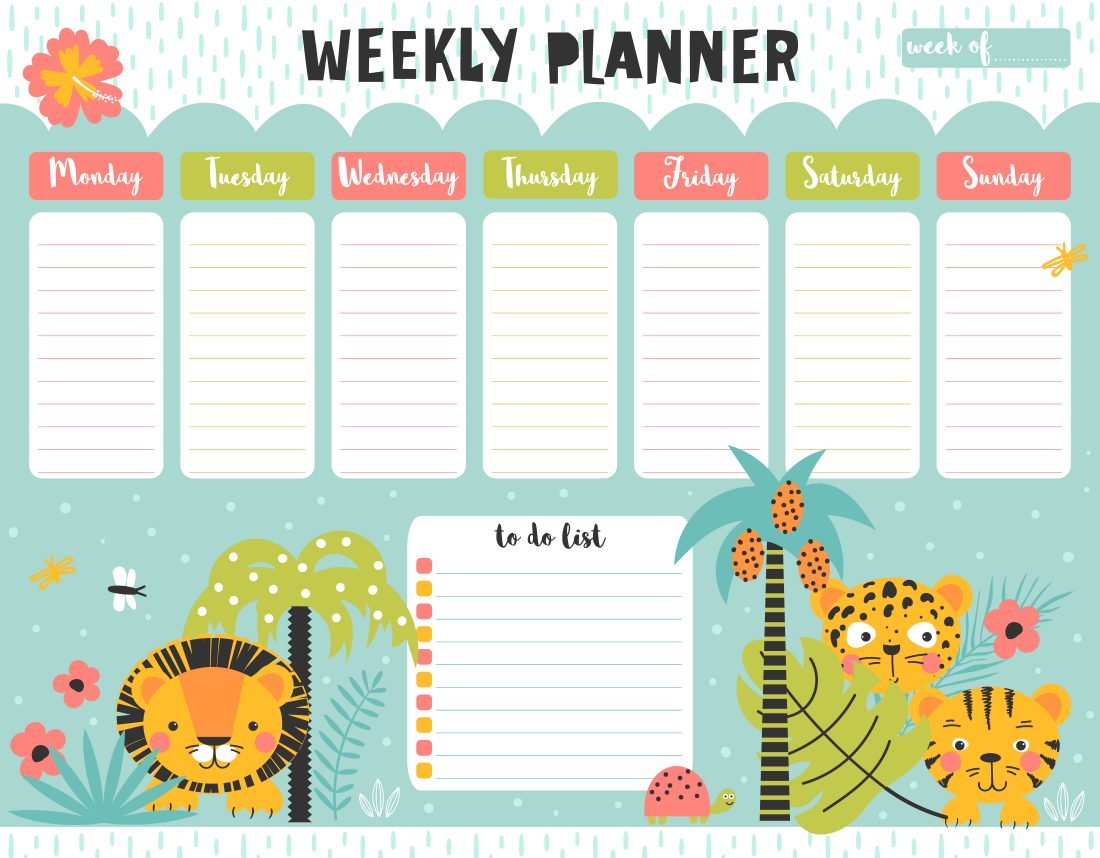This is a sponsored guest post.
On some level, most kids are chaotic. You’re blessed if you have an organized child that doesn’t need to be told to pick up toys or clean the room. However, having a kid who’s a little disorganized is not a problem because there are ways to get them straightened out.

Follow the guide below to teach your kids to get organized:
Establish Routine Chores
You can’t rely on the school to teach your kids about everything that they need to know. The learning process always starts at home. Do your chores on the same day per week, so you can establish a routine.
For example, you can do the laundry every Saturday and let them get involved. Always do the laundry on Saturdays, so that it becomes instilled in their heads that Saturday is laundry day. They will not only keep in mind to clear activities for that day, but they will also begin to start sorting out the laundry the night before to prepare for the next day.
You can also assign them with chores that involve organizing. Make them pick up their toys, or unload the groceries. Let them handle bigger jobs, too, like cleaning out the closet where you keep your quiet vacuum cleaners or washing, drying, and storing your dishes.
Giving them small responsibilities while they’re young helps them get organized.
Buy Your Kids Planners
Planners are an excellent way to teach your kids some time management. Take them with you when you go shopping and let them pick out their planners. Allowing them to get the planner that they like will make them excited to use it.
Encourage them to create their schedule, but you can also help them at first to get them started to use it. Mark off the days when they are scheduled to do the chores and even the school deadlines, if they have any.
Allow them to use colored pens or put stickers on it to make it fun, which will encourage them to look at it and see if they have scheduled activities.

Help Them Have A Homework Schedule
Create a timeline for when they could do their homework and study their lessons, and don’t forget to give them a free time to play and do what they want. The free time should be seen more as a reward, so that they don’t get tempted to skip to fun times.
If they have long-term projects at school, help them set a time frame to complete it. Don’t let them get used to the habit of procrastinating. If they were given a project today with a submission deadline after four weeks, don’t let them wait until the last minute to complete it.
Set up points on their planner when they have to do research, gather supplies, make the draft, and then finish the project.
Encourage Them To Collect Something
Let your kids start a collection of something they are interested in, like toys or little trinkets. Notice the things that fascinate them, and maybe you can encourage them to collect stuff. Collecting is an excellent way for them to learn how to organize and sort.
When they are interested in what they are collecting, they are more inclined to keep them neat and in order. It’s because it’s something that they like, so naturally, they want to keep it safe and away from damages.
It doesn’t have to be something that’s expensive. It could be rocks, seashells, or stamps. If it’s expensive, maybe you could try a rewards tactic. Assign chores such as organizing their toys and closet, or cleaning the house, and make them earn the item.
Don’t Interfere Too Much
When your kids fail to do their scheduled activities like
cleaning and doing their homework, don’t do it for them. Let them face the
consequences of their actions. It helps them learn the lesson on why they have
to do it.
If you keep on doing stuff for them, they’ll soon realize that it doesn’t
matter whether they stick to their schedule because mom would be there to
rescue.
Even the simple task of waking them up for school, should be done by themselves. It’s okay to do it from time to time because sometimes they need help, but it should be very seldom.
Final Thoughts
Being organized is a skill to be learned. It will take some time for your kids to adjust to the responsibilities given to them, so have patience and be there to guide them. It’s best to teach them while they’re still young so that they don’t grow up dependent on you.




